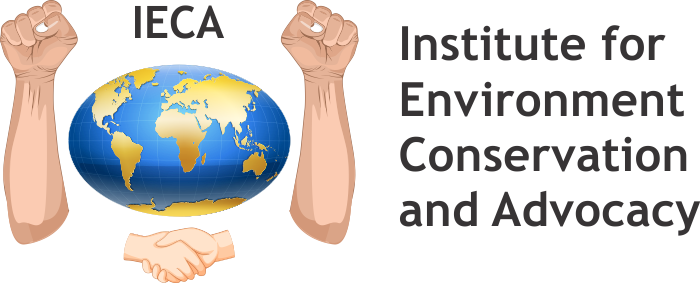
We work to spread action research based, action-oriented knowledge and comprehension of environmental concerns, specifically in educational institutions adopting experiential learning methodologies.
Educational institutions have an essential role in encouraging environmental sustainability and conservation among students, faculty, and the community through experiential learning. Some such actions and projects carried out by educational institutions to aid in environmental preservation:
 Green Rating and Green Ranking: We promote measured, monitored and managed environment conservation actions and sustainability promotion projects on the campuses. We institutionalise green rating and green ranking of educational institutions and their practices. Educational institutions are vital in raising a generation of environmentally action-oriented people who can contribute to a sustainable future through imparting environmental ideals, knowledge, and practises.
Green Rating and Green Ranking: We promote measured, monitored and managed environment conservation actions and sustainability promotion projects on the campuses. We institutionalise green rating and green ranking of educational institutions and their practices. Educational institutions are vital in raising a generation of environmentally action-oriented people who can contribute to a sustainable future through imparting environmental ideals, knowledge, and practises.
Environmental Education: We focus on contributing to student action orientated knowledge and comprehension of environmental concerns. The educational institutions need to include environmental education into their curricula. Creating educational experiences based on action research to faculty and students about ecosystems, biodiversity, climate change, sustainable practises, and environmental stewardship are all part of this. Environmental education encourages faculty and students to take responsibility for their actions and makes them more ecologically action oriented.
Disaster Risk Reduction: We strive to increase students and educational institutions participation in preventing new risks from disasters, reducing existing disaster risks and managing residual risks. All these interventions contribute to strengthening resilience and therefore for achievement of sustainable development. We promote mock drills to promote preparedness.
Sustainable Operations and Infrastructure: We promote the work of educational institutions in reducing their environmental impact by incorporating sustainable procedures into their operations and infrastructure. This includes enhancing greenery on the campuses, eco-friendly transportation alternatives, waste management programmes, water conservation techniques, and energy-efficient electricity consumption. Campuses featuring biodiversity and sustainable architecture are another goal of educational institutions.
Climate Change and Resilience: We build climate resilience by increasing the ability to anticipate, prepare for and respond to hazardous events, trends, or disturbances related to climate. Climate change has been impacting every walk of life across the globe. Our effort is to improve climate resilience by supporting in assessment as to how climate change is creating new, or alter current, climate-related risks, and taking steps to better cope with these risks.
Recycling and Waste Reduction: We focus on increasing the strength of educational institutions in handling recycling and practicing waste reduction techniques. For paper, plastic, glass, and other recyclables, they connect to the recyclers of the concerned stream of waste. Institutions also encourage the use of reusable water bottles, lunch containers, and other environmentally friendly substitutes, as well as composting programmes for food waste. Such initiatives aid in reducing trash production and advancing a circular economy.
Green Projects & Activities: We are with the educational institutions in launching a range of green activities. This might include setting up nature pathways on campus, performing environmental research programmes, increasing community biodiversity by planting endemic trees. These programmes provide students practical opportunities to interact with nature, study conservation, and take an active role in environmental stewardship.
Environmental Teams, Clubs and Organisations: We build capacities of several teams, clubs and organisations run by students at educational institutions that are committed to protecting the environment. These teams coordinate public service initiatives, green events, and awareness campaigns. They provide faculty and students avenues to work together, exchange ideas, and take collective environmental action.
Collaboration and Partnerships: We encourage environmental protection activities of educational institutions through partnerships with outside groups, governmental organisations, and environmental NGOs. They take part in campaigns, action research projects, and action programs related to the environment. Such partnerships provide chances for information exchange, resource pooling, and group initiatives aimed towards a sustainable future.
Community Engagement: We provide technical inputs to the educational institutions which work with the neighbourhood to increase awareness and enlist its support for environmental protection initiatives. They plan public participation in environment conservation initiatives, workshops, and interactions on sustainability-related subjects. In order to carry out environmental restoration projects or take part in local conservation activities, institutions also work in partnership with community organisations.

 Call :
Call :